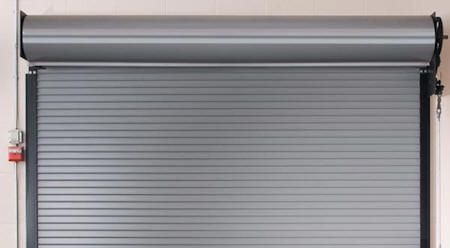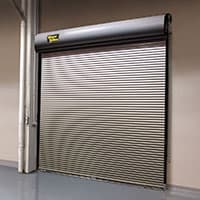
Comparing Steel and Aluminum Doors: Determining the Superior Choice
When it comes to choosing the right door for your home or business, the decision between steel and aluminum can be difficult. Both materials have their advantages and drawbacks, making it important to consider your specific needs and preferences.
Steel doors are known for their strength and durability. They offer excellent security and are resistant to forced entry. Steel doors are also energy efficient, as they provide better insulation and can help reduce heating and cooling costs. However, steel doors can be heavy and may require more maintenance, such as regular painting or refinishing.
On the other hand, aluminum doors are lightweight and corrosion-resistant. They are a popular choice for coastal areas, as they can withstand saltwater and humidity without deteriorating. Aluminum doors also have a sleek and modern appearance, making them a great option for contemporary homes and offices. However, aluminum doors may not provide the same level of security as steel doors, and they may not be as energy efficient.
In conclusion, the choice between a steel and aluminum door ultimately comes down to your specific requirements. If security and durability are your top priorities, a steel door may be the better option. If you value a lightweight and low-maintenance door with a modern aesthetic, aluminum may be the way to go. Consider your needs, budget, and personal style before making a decision.
Advantages of Steel Doors
When it comes to choosing between a steel or aluminum door, many homeowners wonder which is better. In terms of strength, security, and durability, steel doors have several advantages over their aluminum counterparts.
Strength: Steel is known for its exceptional strength, which makes steel doors highly resistant to physical impact and intrusions. They provide a solid barrier against forced entry, giving homeowners peace of mind knowing their property is well protected.
Security: Steel doors are favored by many for their superior security features. They come with multi-point locking systems and reinforced frames, making them extremely difficult to break through. These added security features make steel doors an excellent choice for those concerned about home security.
Durability: Steel doors are built to last. They are resistant to warping, cracking, and rotting, making them suitable for various climates. Steel doors also require minimal maintenance, saving homeowners time and money in the long run.
Energy Efficiency: Steel doors are known for their excellent insulation properties, making them energy efficient. They help to block out external noise and maintain a comfortable indoor temperature, potentially lowering heating and cooling costs.
In conclusion, steel doors offer a range of advantages compared to aluminum doors. Their strength, security features, durability, and energy efficiency make them a popular choice among homeowners looking for a reliable and long-lasting door option.
Durability and Longevity
One of the most important factors to consider when choosing between a steel or aluminum door is its durability and longevity. Both steel and aluminum doors have their own unique qualities that make them suitable for different situations.
Steel doors are known for their exceptional strength and heavy-duty construction. They are highly resistant to impact, making them less likely to dent or bend compared to aluminum doors. Steel doors are also more resistant to harsh weather conditions, such as strong winds and heavy rain. This durability ensures that steel doors can last for many years without requiring significant maintenance or repairs.
On the other hand, aluminum doors are lightweight and have excellent corrosion resistance. This makes them ideal for areas with high humidity or frequent exposure to moisture, such as coastal regions. While aluminum doors may not be as strong as steel doors, they are still durable and can withstand everyday wear and tear. Proper maintenance, such as regular cleaning and painting, can greatly extend the lifespan of an aluminum door.
Ultimately, the choice between a steel or aluminum door will depend on your specific needs and priorities. If strength and durability are your main concerns, a steel door may be the better option. However, if corrosion resistance and low maintenance are more important to you, an aluminum door may be the right choice. Consider factors such as the climate, location, and intended use of the door to determine which material is best suited for your needs.
Security and Safety Features
When it comes to security and safety features, both steel and aluminum doors offer their own advantages. Here is a comparison of the features offered by each:
- Durability: Steel doors are known for their strength and sturdiness, making them extremely difficult to break through. On the other hand, aluminum doors are lightweight and may not be as resistant to forced entry.
- Resistance to Weather: Both steel and aluminum doors can withstand different weather conditions. However, steel doors are more resistant to dents and dings caused by heavy rain, hail, or strong winds.
- Fire Safety: Steel doors have a higher fire rating compared to aluminum doors, providing an extra layer of protection in case of a fire.
- Sound Insulation: Steel doors tend to have better sound insulation properties compared to aluminum doors, blocking out noise from the outside and providing a quieter environment.
- Maintenance: Aluminum doors are generally low-maintenance as they do not rust or corrode. Steel doors may require regular maintenance to prevent rust, especially in areas with high humidity or salt exposure.
- Care for the Environment: Aluminum doors are considered more environmentally friendly as they are recyclable and require less energy to produce compared to steel doors.
Ultimately, the choice between a steel or aluminum door depends on individual preferences, budget, and the specific security and safety needs of the property. Considering the above features can help determine which type of door is better suited for a particular situation.
Resistance to Weather Conditions
One important factor to consider when choosing between a steel or aluminum door is its resistance to weather conditions. Both steel and aluminum doors have their own strengths and weaknesses in this regard.
Steel doors are known for their durability and ability to withstand harsh weather conditions. They are often coated with weather-resistant paint or materials to protect the steel from rust and corrosion. Steel doors are also known for their stability and strength, making them a good choice for areas prone to extreme weather, such as strong winds or heavy rains. However, over time, steel doors may develop dents or scratches due to impact, which can affect their weather resistance.
Aluminum doors, on the other hand, are lightweight and naturally resistant to rust and corrosion. This makes them a great option for areas with high humidity or coastal regions where exposure to saltwater and moisture is common. Aluminum doors can also withstand temperature changes without warping or cracking, making them suitable for regions with extreme heat or cold. However, aluminum is softer than steel and may not provide the same level of security and impact resistance as steel doors.
In conclusion, when it comes to resistance to weather conditions, both steel and aluminum doors have their advantages. Steel doors offer greater stability, strength, and impact resistance, while aluminum doors are lightweight, rust-resistant, and suitable for areas with high moisture. The better choice depends on the specific weather conditions and other requirements of the door installation.
Sound Insulation
When it comes to sound insulation, both aluminum and steel doors have their strengths and weaknesses.
Aluminum doors, which are known for their lightweight and durable properties, may not provide the same level of sound insulation as steel doors. Due to the nature of aluminum, it has a lower density than steel, making it more susceptible to sound transmission. While aluminum doors can still offer some level of soundproofing, they may not be as effective in blocking out noise as steel.
On the other hand, steel doors are known for their excellent sound insulation capabilities. Steel has a higher density and is therefore better at blocking sound waves. This can be particularly important in areas with high noise levels, such as near busy roads or in urban environments.
Ultimately, the choice between aluminum and steel doors will depend on your specific needs and priorities. If sound insulation is a top concern, steel doors may be the better option. However, if other factors such as cost, weight, or design are more important to you, aluminum doors may still be a suitable choice, albeit with slightly reduced sound insulation capabilities.
It’s worth noting that both aluminum and steel doors can be enhanced with additional soundproofing materials or techniques, such as adding acoustic seals or using multiple panels. Consulting with a professional or doing further research can help you determine the best solution for your specific situation.
Fire Resistance
One of the most important factors to consider when choosing a door is its fire resistance. Both steel and aluminum doors offer certain levels of fire resistance, but the extent of their resistance can vary.
Steel doors are generally known for their superior fire resistance compared to aluminum doors. Due to the inherent properties of steel, such as its high melting point and durability, steel doors can withstand extreme heat and fire for a longer period of time before they start to deform or lose their structural integrity.
On the other hand, aluminum doors have lower fire resistance compared to steel doors. Aluminum is a lightweight material that has a lower melting point and is more prone to warping and becoming structurally compromised in the presence of fire.
However, it is worth noting that the fire resistance of a door also depends on factors such as the quality of construction and the presence of additional fire-resistant features, such as fire-rated glass or seals. So, while steel doors may generally offer better fire resistance, it is essential to consider the specific fire rating and features of the door when making a decision.
In summary, when considering fire resistance, steel doors are generally considered to be better than aluminum doors. However, it is important to evaluate other factors and the specific fire rating of the door before making a final decision.
Cost-Effectiveness
When it comes to cost-effectiveness, both steel and aluminum doors have their advantages and disadvantages. The better choice ultimately depends on the specific requirements and budget of the buyer.
Steel doors are generally more affordable compared to their aluminum counterparts. They provide a strong and durable option for those looking for a budget-friendly solution. Steel is a cost-effective material that offers good insulation and security. Additionally, steel doors require minimal maintenance, making them a practical choice in terms of long-term costs.
On the other hand, aluminum doors may have a higher initial cost compared to steel doors. However, aluminum is known for its lightweight and corrosion-resistant properties, which can contribute to cost savings in the long run. Aluminum doors also offer excellent thermal insulation, saving energy and reducing heating or cooling costs over time. Furthermore, aluminum doors require little maintenance and are highly resistant to rust or decay.
| Affordable | Higher initial cost |
| Strong and durable | Lightweight and corrosion-resistant |
| Low maintenance | Low maintenance |
| Good insulation | Excellent thermal insulation |
In conclusion, the “better” option in terms of cost-effectiveness depends on individual preferences and requirements. Steel doors offer affordability, strength, and low maintenance, while aluminum doors provide lightweight, corrosion-resistance, and energy-saving benefits. Ultimately, considering one’s budget, long-term savings, and desired features is essential in making an informed decision.
Wide Range of Design Options
When it comes to design options, aluminum doors have the upper hand. Aluminum is a versatile material that can be easily molded into various shapes and sizes. This means that you can choose from a wide range of designs and styles to suit your personal taste and the overall aesthetic of your home or office.
Steel doors, on the other hand, tend to have a more traditional and industrial look. While they are durable and offer excellent security, they may not provide as many design options as aluminum doors.
So, if you are looking for a door that not only provides security but also adds a touch of style to your space, aluminum doors might be the better choice for you.
Low Maintenance Requirements
When it comes to low maintenance requirements, it is hard to determine which is better: a steel door or an aluminum door. Both materials have their advantages and disadvantages in terms of maintenance.
As a steel door is made from a durable and strong material, it requires minimal maintenance. Steel doors are resistant to cracking, warping, and corrosion, making them an ideal choice for exterior doors. To keep a steel door looking its best, a simple cleaning routine using mild soap and water is usually sufficient. Regular inspections for any signs of wear or damage are recommended, and any necessary repairs can be easily done with the appropriate tools and materials.
On the other hand, aluminum doors are also known for their low maintenance requirements. Just like steel doors, aluminum doors are resistant to corrosion and warping. They are also lightweight, making them easy to operate. Cleaning an aluminum door is as simple as using a mild detergent and water. Regular inspections for scratches or dents are advised, as any damage should be addressed promptly to prevent further issues.
In conclusion, both steel and aluminum doors offer low maintenance requirements. However, the choice between the two ultimately depends on personal preferences and specific needs. Considering factors such as durability, aesthetics, and insulation properties are crucial when deciding which material is better for a particular situation.
Advantages of Aluminum Doors
When it comes to choosing between steel or aluminum doors, many people wonder which one is better. In this article, we will explore the advantages of aluminum doors to help you make an informed decision.
One of the main advantages of aluminum doors is their durability. Aluminum is a strong and sturdy material that can withstand various weather conditions without deteriorating. This makes aluminum doors ideal for outdoor use, as they are resistant to rust, corrosion, fading, and warping. Additionally, aluminum doors are lightweight, which makes them easier to handle and install.
Another advantage of aluminum doors is their energy efficiency. Aluminum is an excellent conductor of heat and cold, which means it can help keep your home insulated. This can lead to energy savings by reducing the amount of heat or cool air that escapes, resulting in lower energy bills. Furthermore, aluminum doors can be fitted with thermal breaks or insulated glass to enhance their energy efficiency.
Aluminum doors also offer a wide range of design options. They can be easily customized to fit any architectural style and come in various finishes, colors, and patterns. This allows you to find an aluminum door that perfectly complements the aesthetics of your home or building. Additionally, aluminum doors can be easily painted or coated to match any desired color scheme.
Lastly, aluminum doors are low maintenance. Unlike steel doors that may require regular painting or refinishing to prevent rust and corrosion, aluminum doors are resistant to these issues. They require minimal upkeep and can be easily cleaned with just soap and water.
In conclusion, when it comes to choosing between steel or aluminum doors, aluminum doors offer several advantages. They are durable, energy-efficient, customizable, and low maintenance. Consider these benefits when making your decision.
Lightweight and Easy Installation
When it comes to choosing a door for your home or office, one of the factors to consider is the weight of the door itself and the ease of installation. In this aspect, both steel and aluminum doors have their advantages and disadvantages.
Steel doors are known for their durability and strength. They are heavier than aluminum doors, which can make them more difficult to install. However, the weight of a steel door also adds to its sturdiness and security. Steel doors provide a sense of protection and are less likely to deform or dent.
On the other hand, aluminum doors are lightweight and easier to handle during the installation process. Their lightweight nature makes them a popular choice for residential applications. Aluminum doors are also more resistant to corrosion and rust. They require less maintenance and can last for a longer time compared to steel doors.
In conclusion, both steel and aluminum doors have their unique features when it comes to the aspects of lightweight and easy installation. The choice between the two ultimately depends on the specific requirements and preferences of the buyer.
Resistance to Corrosion and Rust
Steel doors are known for their strength, which makes them highly resistant to dents and impacts. However, steel is susceptible to rust when exposed to moisture and salty environments. To combat this, steel doors are often coated with corrosion-resistant substances such as zinc or paint. Regular maintenance, including cleaning and reapplying coatings, is crucial to ensure the longevity of a steel door.
On the other hand, aluminum doors are inherently resistant to rust and corrosion due to their natural oxide layer. This layer acts as a protective barrier, preventing the metal underneath from coming into direct contact with moisture and air. This means that aluminum doors require less maintenance compared to steel doors.
While aluminum is more resistant to rust, steel doors can still be a viable option in certain situations. For instance, in areas with high security requirements or where additional fire resistance is needed, steel doors may be preferred. Additionally, steel doors can provide better insulation properties compared to aluminum doors.
Ultimately, the choice between a steel or aluminum door depends on various factors, including the specific needs of the consumer and the intended application. Considering factors such as resistance to corrosion and rust is just one aspect to weigh when making a decision.
Energy Efficiency
When considering which type of door is better, steel or aluminum, energy efficiency is an important factor to consider. Both steel and aluminum doors have their own unique advantages when it comes to energy efficiency.
Steel doors are known for their durability and insulation properties. They are typically thicker and provide better insulation than aluminum doors. This means that steel doors can help to maintain a consistent indoor temperature, reducing the need for excessive heating or cooling. The insulation properties of steel doors can also help to reduce energy consumption, resulting in lower energy bills.
On the other hand, aluminum doors are known for their lightweight and corrosion-resistant properties. While aluminum doors may not provide the same level of insulation as steel doors, they can still be energy efficient when combined with the right features. For example, aluminum doors can be designed with thermal breaks or insulated glass panels to enhance their energy efficiency.
In conclusion, when it comes to energy efficiency, both steel and aluminum doors have their own advantages. Steel doors are typically more insulated, while aluminum doors can be enhanced with additional features to improve their energy efficiency. The decision of which type of door is better ultimately depends on personal preferences and specific needs.
Design Flexibility
When it comes to design flexibility, both steel and aluminum doors offer unique advantages.
Steel, which is known for its strength and durability, allows for a wide range of design options. With steel doors, you can choose from a variety of patterns, panel styles, and finishes to match your home’s aesthetic. Additionally, steel doors can be painted in any color you desire, giving you the ability to customize the look and feel of your entrance.
On the other hand, aluminum doors are lightweight and highly malleable, making them a popular choice for modern and contemporary designs. The flexibility of aluminum allows for intricate detailing, thin profiles, and large glass inserts. With aluminum doors, you can create a sleek and minimalist look that enhances the overall appearance of your home.
Ultimately, the choice between steel and aluminum doors depends on your personal preference and the style of your home. Both materials offer design flexibility that can complement any architectural style.
Recyclability
When it comes to recyclability, aluminum is the clear winner. Aluminum doors are highly recyclable and can be melted down and repurposed without losing their quality or strength. On the other hand, steel doors can also be recycled, but the process is more energy-intensive and can result in a loss of strength.
By using aluminum doors, you are contributing to a more sustainable and eco-friendly solution. Aluminum is one of the most widely recycled materials in the world and can be reused countless times without losing its properties.
Furthermore, the recycling process of aluminum requires only a fraction of the energy compared to producing new aluminum, making it a more energy-efficient choice.
In contrast, steel often requires significant amounts of energy to be extracted and processed, which can have a negative impact on the environment. Additionally, the recycling process for steel involves melting it at high temperatures, which can be energy-intensive.
In conclusion, if recyclability is an important factor for you, aluminum is the better choice for a door material. Its high recyclability, energy efficiency, and minimal loss of strength make it a more sustainable option compared to steel.
Q&A:
Is a steel door better than an aluminum door in terms of durability?
Both steel and aluminum doors are durable, but steel doors are generally considered to be more durable and stronger than aluminum doors.
Are aluminum doors more resistant to corrosion compared to steel doors?
Yes, aluminum doors are more resistant to corrosion than steel doors. Aluminum does not rust like steel, making it a better choice for areas with high humidity or near the coast.
Which type of door offers better insulation, steel or aluminum?
Steel doors are known to be better insulators than aluminum doors. They have higher thermal resistance and can provide better energy efficiency by preventing heat transfer.
Are steel doors more expensive than aluminum doors?
No, aluminum doors are generally more expensive than steel doors. Steel doors are a more cost-effective option while still offering durability and security.
Does the choice between steel and aluminum doors affect the overall appearance of the house?
Both steel and aluminum doors come in a variety of styles and designs, so the choice between them does not significantly impact the overall appearance of the house. It ultimately comes down to personal preference and the desired aesthetic.







